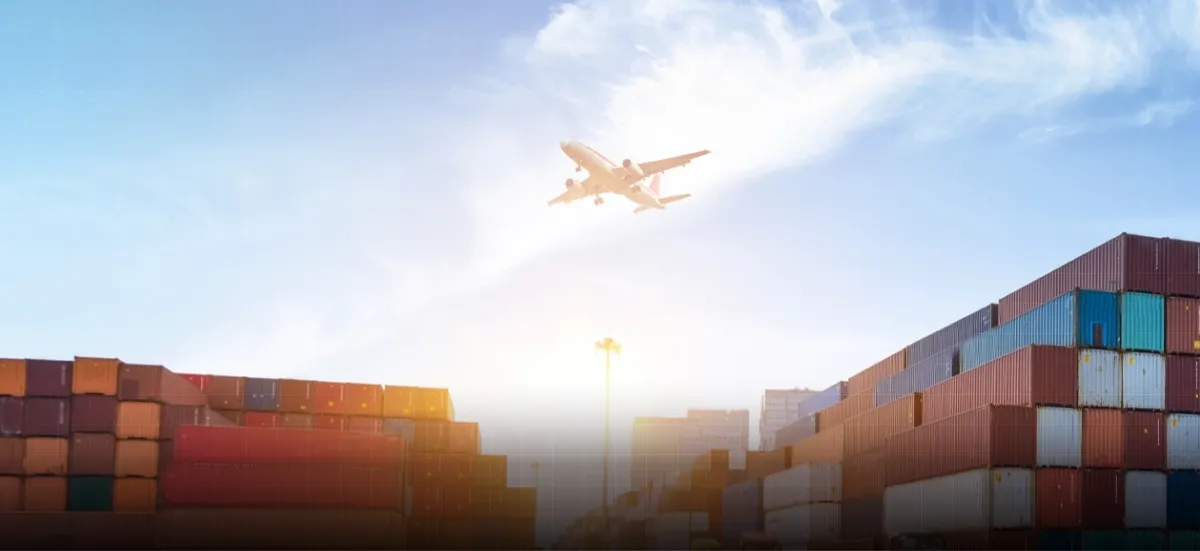The Effect of US Tariffs on International Flight Prices & Travel in 2025

While tariffs do not affect the travel industry directly, they do have an indirect impact on the operational costs of hotels and flights, as well as many other facilities. The new policies and tariffs announced by the United States took the entire world by surprise and had a huge impact on the overall economic growth.
The U.S. introduced new tariffs on March 4, 2025, mainly targeting commercial imports to help the country become self-reliant and increase in-house production. These US airfare tariff changes in 2025 will significantly affect global travellers and traders from regions such as Europe, Africa, Canada, and the entire Asia.Quick Overview: Impact of US Tariffs on International Travel in 2025
- Higher Flight Prices: New U.S. tariffs, especially the 25% duties on steel and aluminium, are increasing airline operational costs, leading the airlines to charge higher ticket prices.
- Drop in Travel Demand:A sharp decline in international bookings, affecting airline revenues and leading to fewer deals and adjusted routes.
- Market Instability & Fare Hikes:U.S. airline stocks like Delta and American saw declines post-tariff announcement.
- Effect on Personal Goods:Personal duty-free allowances remain unchanged at $800. However, items exceeding this limit may face increased duties due to the tariff changes.
- Most Affected Routes:Travel between the U.S. and countries in trade disputes (e.g., China, Canada) is most impacted due to retaliatory tariffs and lower demand, making such routes more costly and less frequent.
The Major Factors Affecting International Flight Prices
The major points or factors that will play a vital role in the international flight prices come under three categories: operational costs, travel demand and market instability. Also, individual travellers carrying personal goods will also be affected by heavier import duties and overhead expenses on expensive duty-free products. The following are the major reasons and causes of the impact of each factor.
- Increased Operational Costs from U.S Tariffs: The new US tariffs have imposed higher import duties on products, particularly the 25% duty on steel and aluminium, which has directly impacted airline expenditures. The relationship and trading consistency with the key trading partners for these metals, like Canada, Mexico, Japan, and the European Union, will be affected badly. Aircraft manufacturing and maintenance are hugely reliant on these metals, and with these new import duties, there is a big possibility of increased operational costs for the airlines. The higher prices for imported parts and maintenance equipment will be directly absorbed by the ticket prices, as these companies will shift their cost burdens on the consumers. The travel costs affected by tariffs will see a reasonable hike, leading to a decline in affordability and less travel.

- Decrease in Travel Demand: Due to these tariffs, there has been an international backlash among markets and people, leading to a noticeable decline in travel demand. The influence began with a decline in Canadian bookings to the U.S. till the month of September. The drop was as big as 70% year-on-year. Overall, the US airlines reported a 6% drop in bookings within four days of the announcements. This has directly created a major setback for the airlines financially, prompting them to adjust prices and routes, resulting in fewer deals and offers, and higher prices for international travellers.
- Increased Prices to Offset Market Instability: After the announcement, there was a big crash in the stock performance of major US airlines like Delta, United, and American, reflecting a financial strain. While some airlines showed stability, others showed volatility amid declining revenue forecasts and rising expenditures. This instability will lead the airlines to increase the international ticket prices and fares to offset the losses and market crash. This will make international flight prices increase, leading to travel becoming more expensive for consumers.
The US trade policy and travel fare hike have left the global travel market in an enormous pit. Our final thought is that while the impact of these tariffs on everyday travellers is not as big as on businesses, investors, and traders, it will still bring a massive economic change globally.
If you are planning to travel in the near future, check out the international flight prices and offers on our website https://www.triwize.com. Creating a better, affordable, and dynamic travelling experience for all.
FAQs
- Will the new US tariffs make international flights more expensive?
Yes, the US tariffs will make international flights expensive as the airline companies are facing higher operational and maintenance costs. These added expenses are often passed on to the end consumers in the form of higher ticket prices.
- Do the tariffs affect the price of goods I can bring back from another country?
No, the price of personal goods is not largely affected by the US tariffs because the personal duty-free exemption of $800 per traveller remains unchanged. If the limit is beyond this number, then you might need to pay higher duties on the excess amount.
- Which are the major international destinations affected more by the US tariff changes?
Travel to and from countries involved in trade disputes with the U.S., such as China or Canada, is more affected due to retaliatory tariffs and reduced travel demand, which can influence prices and availability.
- How will US tariffs impact airline routes and flight availability?
The tariffs have caused airlines to reassess their routes and schedules due to decreased demand and higher operational costs. This may lead to reduced flight frequency or suspension of less profitable international routes, affecting availability and convenience for travellers.
- Can travellers expect long-term price increases on international flights due to these tariffs?
While some price hikes may stabilise once airlines adjust to new costs, ongoing trade tensions and fluctuating operational expenses suggest that international flight prices could remain higher for the foreseeable future, especially on routes impacted by tariffs and retaliatory measures.



